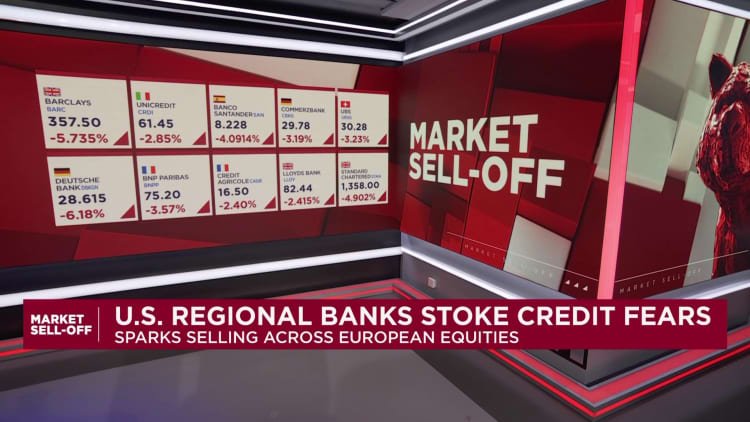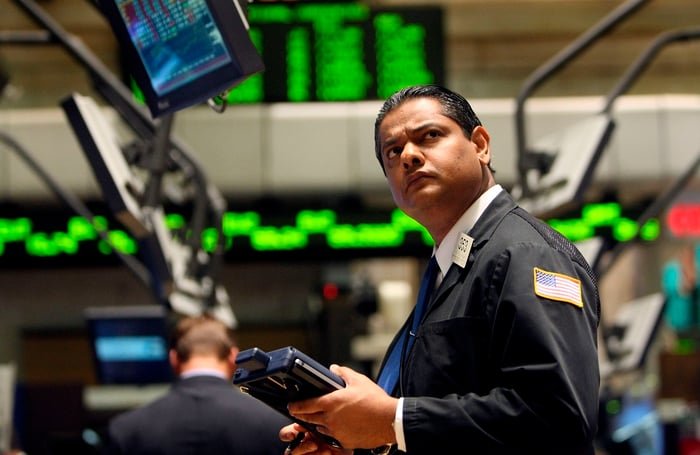By
Bach Quang
Wed, October 8, 2025 | 7:06 am GMT+7
Vietnam’s stock market will be reclassified from “frontier” to “secondary emerging” from September 21 next year, subject to an interim review in March 2026, FTSE Russell stated in a release.
The global index provider published the results of its annual country classification review in a statement on Tuesday (early Wednesday, Vietnamese time).
The interim review in March 2026 aims “to determine whether sufficient progress has been made in enabling access to global brokers, which is essential to support index replication and meet the needs of the international investment community.”

Illustration courtesy of the Thi truong Tai chinh Tien te (Monetary-Financial Market) magazine.
FTSE Russell stated that it recognizes the progress made by the Vietnamese market authorities in evolving its market by removing the prefunding requirement for foreign Institutional investors (FII), with the implementation of a non-refunding (NPF) model and establishing a formal process for handling failed trades.
“FTSE Russell acknowledges that Vietnam has met all the criteria of the Secondary Emerging market status under the FTSE Equity Country Classification Framework. FTSE Russell will continue to monitor developments closely and welcomes feedback from index stakeholders to enable the reclassification to proceed as planned in September 2026,” it added.
Nguyen Van Thang, Vietnamese Minister of Finance, said the official recognition and upgrade of Vietnam’s securities market is clear evidence of the country’s sound development path and its growing capacity to integrate deeply into the global financial system.
“The Ministry of Finance remains committed to advancing deeper and broader reforms, maximizing accessibility for both domestic and international investors, while accelerating the modernization and digitalization of its market infrastructure – with the objective of establishing an increasingly transparent and efficient market,” the release quoted him as saying.
David Sol, global head of Policy at FTSE Russell, commented: “FTSE Russell congratulates the Vietnamese market authorities on the significant progress made in aligning with international standards. The reclassification of Vietnam reflects the implementation of key market infrastructure enhancements, and we look forward to continued collaboration to ensure sustained progress ahead of the target reclassification date in September 2026.”
HSBC analysts in a report released in early September noted that Vietnam has made notable progress in meeting the requirements of FTSE.
They noted the country has met seven out of the nine criteria required for promotion to FTSE indices. “We think developments on the two other issues outstanding – the Securities Law and the launch of the KRX trading system – bring Vietnam closer to an upgrade”.
The analysts, however, noted that foreign ownership limits (FOL) remain a concern. It is not an explicit requirement, but FTSE consults with investors who might argue that FOL limits market access, they stressed. “Currently, only 12 Vietnamese stocks have exhausted their FOL limits. On average, the VN-Index has an FOL of 42%; and current foreign holdings are only 17%.”
HSBC stressed that an upgrade means Vietnam would automatically be included in indices like FTSE All-World, FTSE EM, and FTSE Asia. Passive funds benchmarked to these indices will have to buy Vietnam equities or ETFs. Active funds have the discretion to do so.
HSBC’s analysis shows that a large portion of Asian and Emerging Market active funds already hold Vietnamese equities (38% of Asia funds and 30% of Global Emerging Markets or GEM funds). The Asia funds already own on average 0.5% in Vietnam.
The bank’s analysts estimate an upgrade might lead to inflows of $3.4 billion. They assessed that the amount of actual flows would likely be smaller and staggered over time. $1.5 billion of inflows would come from passive funds once inclusion is completed.
“Based on our most optimist scenario, reclassification by FTSE could bring a maximum of $10.4 billion into Vietnamese equities,” they wrote.






